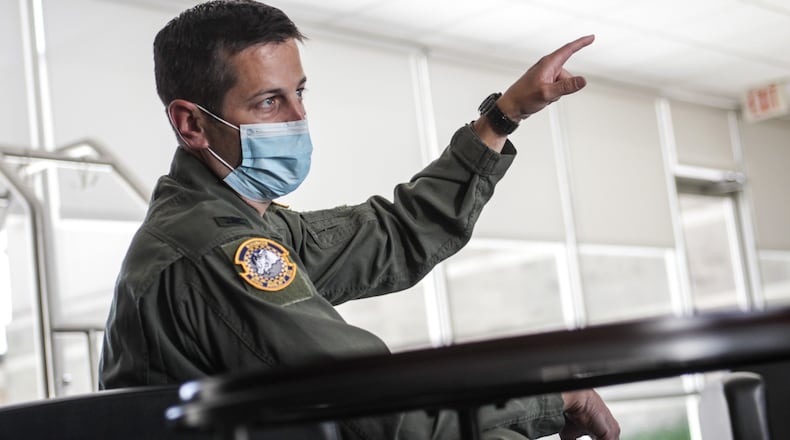In the span of a few days in early April, Air Force Col. Hans Otto, commander of the 445th Aerospace Medicine Squadron, found himself far from his Cincinnati-area allergy practice, working in a South Bronx hospital, where at one point COVID-19 was killing 20 patients a day.
“It was the epicenter,” Otto said in an interview Tuesday at the Hope Hotel at Wright-Patterson. “New York City was hit harder than any other city in the U.S.”
He worked at Lincoln Hospital in the Bronx, which he said suffered more than any hospital in New York.
MORE: Business owner apologizes for controversial Facebook comment
Multiplying the challenges for nurses and physicians serving there: The South Bronx population around Lincoln Hospital was already shouldering lingering health challenges long before COVID-19 struck. Coronavirus makes fundamental health problems such as asthma, diabetes, alcoholism and addiction all the worse, the colonel said.
“As far as access to care, it was low to begin with, pre-COVID,” Otto said. “And then COVID just makes everything worse.”
Much of this population was taking mass transit daily, he said, living in crowded conditions, and with little or no access to masks or medicine.
“It spread like wildfire in that environment,” the colonel said.
Lincoln Hospital had a capacity to serve 30 intubated patients a day — patients with a tube down the throat to make it easier to get air in and out of the lungs.
When Otto and his colleagues arrived, Lincoln had more than 150 intubated patients.
“They were frankly overwhelmed,” Otto said.
Otto is an allergist, immunologist and internist practicing as a civilian in Cincinnati and Northern Kentucky. He arrived in New York City on April 6, one of seven citizen Airmen who deployed from the 445th Airlift Wing at Wright-Patterson.
MORE: Wright State faculty union fears WSU is targeting tenured professors
Accompanying him were members of a sister squadron, the Air Medical Staging Transport Squadron.
There was no typical day (or night) in New York. A “busy” shift at Miami Valley Hospital in Dayton might involve attending 10 to 15 patients, following an additional 20 to 25 patients peripherally. At Lincoln Otto had 15 to 20 patients, following an additional 40 daily.
And cases were more complex. Patients at Lincoln could often come in with coronavirus, pneumonia, in diabetic crisis, with kidney failure threatening as well.
“Two to three times more medically complex,” Otto said.
The Air Force provided medics, physicians, nurses, physician assistants and more. The Air Force supported three New York hospitals initially, ultimately serving eight hospitals before the end of reservists’ time there.
In all, Otto joined some 275 other Air Force reservists from across the nation in fighting the novel coronavirus in New York.
Civilian physicians taught the reservists a lot in the first crucial days — how the coronavirus increases clotting, worsens secondary infections and more.
In turn, Air Force personnel were able to share their own hard-earned wisdom, Otto said.
Otto said he senses that his fellow Americans are ready to move past COVID-19. They want to get on with their lives. For them, he said, he has a word of caution.
“We still don’t have any tools to fix the coronavirus,” he said. “We have to keep doing social distancing, wearing masks, washing our hands, staying away from sick people, having sick people stay away from us. We still have to do those things.”
About the Author

